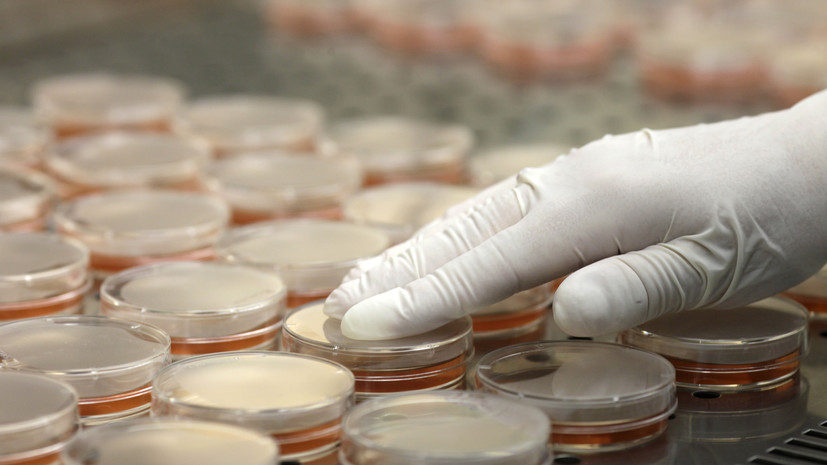Scientists at the Stavropol State Medical University (StSMU) have developed a new strategy for combating pathogenic antibiotic-resistant bacteria.
This is reported in PeerJ magazine.
The research was supported by the Russian Science Foundation.
For the treatment of bacterial infections, the researchers proposed the use of defensins, antimicrobial peptides of the human immune system, together with antibiotics.
These protein fragments are produced by the body to fight infections and counteract various pathogens.
According to the WHO, antibiotic resistance remains one of the most serious threats to human health.
This problem interferes with the effective treatment of a wide variety of infectious diseases.
“Fighting bacteria that are not sensitive to modern drugs is very important.
This is due to the growing mortality - every year more than 700 thousand people die from infections resistant to antibiotics, by the middle of the XXI century this figure will reach 10 million deaths every year, ”said the head of the study at StSMU, Ph.D. Albert Bolatchiev.
“It is obvious that we need a fundamentally new approach to combating antibiotic-resistant pathogens,” added the specialist.
Bolatchiev and his colleagues investigated human antimicrobial peptides, their amount required to destroy the causative agent of the disease, and the degree of influence on certain bacteria.
Defensins HNP-1, hBD-1 and hBD-3 have been identified as the most promising, since they act on a variety of microorganisms: bacteria, viruses and fungi.
The efficacy of using defensins against 27 strains of Staphylococcus aureus and 24 strains of E. coli was studied.
To test the antibacterial effect of defensins and their combination with antibiotics, the so-called checkerboard method was used, when using which scientists had the opportunity to visually track the concentration of a substance necessary to suppress the growth of bacterial colonies.
“The simplicity and convenience of the method lies in the fact that everything is visible by eye.
The research itself takes 48 hours.
Of course, there are some difficulties - you need a lot of different bacterial strains, that is, bacteria of the same species, but with different properties and with different sensitivity to antibiotics.
The more different strains there are, the higher the accuracy of the experiment, ”Bolatchiev explained.
In particular, it turned out that the amount of antibiotics (rifampicin and amikacin) can be reduced several times if they are combined with HNP-1 or hBD-3 defensins.
Also, scientists have found that such combinations are equally effective in destroying any pathogens, even if the latter have increased resistance to conventional antibiotics.
The researchers are confident that their work will breathe new life into the therapy using antibiotics, the effectiveness of which was considered lost.
According to Albert Bolatchiev, further work will be devoted to solving the issues necessary for the introduction of therapy with the participation of antimicrobial peptides.
In particular, scientists have to find a way to stimulate the synthesis of the required amount of defensins by the patient's body, or learn how to produce inexpensive modified peptides for external administration.

